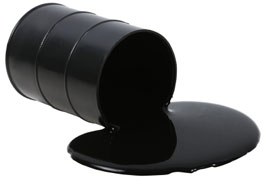
21
Dec
Dec

The Government has passed legislation requiring all suppliers to replace both Electricity and Gas meters with automatic meters for all (but the smallest) businesses by 6th April 2010. It might sound a long way away, but they will have to change 200,000 meters.
Guess who pays? The government has allowed suppliers to pass on all the costs to businesses. This will be either through your supply contract (much the same as it is for most businesses at the moment) or a separate AMR Metering contract. This will inevitably cause some confusion when Renewing or changing your Gas and Electricity supply contracts; the business or whoever looks after your Energy Supply arrangements will generally be able to assist in this area. This information really belongs to the business and so you can sort out all your own metering arrangements and not just keep paying the supplier.
Category : Energy Prices | Legislation | Blog
- Bookmark :
- Digg
- del.icio.us
- Stumbleupon
- Redit it
20
May
May
Direct Debit vs Cash Cheque
Posted by (0) Comment

This article discusses the two forms of payment you are likely to encounter when requested to pay for your energy – direct debit and cash cheque. It is worth noting the difference between the two processes and the additional costs incurred should you choose a cash cheque which increasingly less acceptable to suppliers and in some cases simply not an option.
Definitions
Direct Debit is the process of electronic payment from one bank account to another – this involves an agreement that the energy supplier has the authority to remove the appropriate billed amount from the client account. This transaction is different to a standing order because Direct Debit allows payments of different values. On the other hand, Cash Cheque is a term that is applied to the means of payment by which money is transfered to another bank account via cheque, cash or manual electronic payment – the onus is upon the client to pay the energy company as the energy company does not have the authority to automatically remove the appropriate credit.
Category : Administration | Payment | Blog
- Bookmark :
- Digg
- del.icio.us
- Stumbleupon
- Redit it
6
May
May

Following a recent investigation, Ofgem has released a new set of guidelines for implementation this autumn designed to protect small businesses by increasing transparency in contracts and agreements with energy brokers and advisors. This will reduce many of the problems faced by small businesses in negotiating deals and clarity on knowing what rights they have as a business energy consumer therefore reducing the number of complaints and hours spent resolving disputes. These changes include:
continue
Category : Energy Companies | Legislation | Blog
- Bookmark :
- Digg
- del.icio.us
- Stumbleupon
- Redit it
9
Apr
Apr
 The edging up of Oil prices seems to be the fillip required by the Energy Industry to get on board with both UK Wholesale Electricity and gas prices edging up. Although last year’s July high of over $150 a barrel descended below $40 in December, prices this first quarter of 2009 seem to have steadied above $50. Now that the initial reaction to ‘The Recession’ has settled somewhat, we are back now to the more traditional political and economic machinations against the new globally depressed context.
The edging up of Oil prices seems to be the fillip required by the Energy Industry to get on board with both UK Wholesale Electricity and gas prices edging up. Although last year’s July high of over $150 a barrel descended below $40 in December, prices this first quarter of 2009 seem to have steadied above $50. Now that the initial reaction to ‘The Recession’ has settled somewhat, we are back now to the more traditional political and economic machinations against the new globally depressed context.
Whilst OPEC (Organization of the Petroleum Exporting Countries) has previously set aspirations for the $100 barrel, their latest monthly ‘Oil Market Report’ (March 09), suggests an ongoing acknowledgement of the change in the world markets, and are pursuing the balance between returns for their members against the needs of the Global Consumers in a recession.
It certainly looks that although the upward pressures are still pushing hard (don’t expect the Financial Markets to stop talking up prices this year), it’s not so easy if no one is going to buy. In the Mid market Business market some suppliers are seemingly reluctant to offer longer term fixed rate deals, perhaps anticipating rates going up this year.
Category : Energy Prices | Oil Prices | Blog
- Bookmark :
- Digg
- del.icio.us
- Stumbleupon
- Redit it




